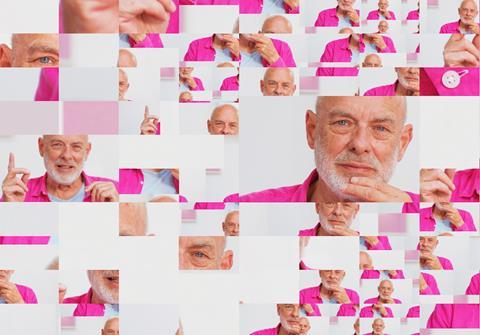Innovative, different-every-time documentary about music pioneer Brian Eno is inspired by his notion of generative music

Dir. Gary Hustwit. US/UK. 2024. 100min
With Eno, the legendary British music pioneer and renowned producer of famous bands such as the Talking Heads, David Bowie and U2, gets a clever documentary shaped by his own innovations. Inspired by Brian Eno’s notion of ’generative music’, in which a musical composition creates itself from a set of sonic elements or notes established by a system, the film bills itself as the first ’generative documentary’ — a real-time computer-generated remix as it unfolds, ie, different every time you see it.
The one constant, and what makes the film worth seeing, is the man himself
To achieve this feat, filmmaker Gary Hustwit (Helvetica) and digital artist Brendan Dawes created Eno using a software program of their own design, so that every screening is entirely unique, with diverse variations composed of different interview scenes and archival sequences, unfolding in a unique order every time. The documentary should find a welcome home with international broadcasters looking to fill their arts, culture, and music slots—but in what version?
As technologically revolutionary as this also sounds, it’s not really what makes Eno stand out. Sure, it is intriguing to think that the documentary being reviewed here will not be exactly the same documentary that another person sees down the line. But the one constant—and what makes the movie worth seeing—is the man himself. Charming, smart, sensitive, genial, and exuding an almost childlike passion for and profound (though never pretentious) questioning of the musical art-form, Eno makes for great company, regardless of the film’s innovative making. Except for several quick two-second intercut shots showing The Matrix-like digital code onscreen to acknowledge the software, it is likely that some viewers could watch the film and have no idea that it was in the constant act of remaking itself.
The film’s randomly generated structure manages to cohere enough to make the experiment mostly a success. While it does not follow a conventional narrative or emotional arc, and some viewers might experience a soaring climactic montage sequence that sums up Eno’s ethos in the middle of the film rather than at the end, perhaps it does not matter too much. After all, Eno himself would tell you that humankind’s innate sense of pattern recognition will intuitively create connections to make things cohere anyway. As he says in the film, “The audience’s brain does the cooking.”
In this version of Eno, the film bounces around from his early days growing up in Suffolk, being inspired by Little Richard and the Silhouettes doo-wop hit ’Get a Job’, to such professional highlights as playing the synthesizer alongside Bryan Ferry in Roxie Music, working with Bowie, in the mixing room with U2 during the creation of their iconic ’Pride (In the Name of Love)’ track, and joking around with Talking Heads front-man David Byrne about their recent collaboration album ’Everything That Happens Will Happen Today’.
There are also just a lot of scenes with the sincere septuagenarian Eno sitting and talking directly to the camera, editing music on his computer, being befuddled by the bumper ads that play before his favorite YouTube clips, and offering his philosophy of music, art, and the future. “I find singing to be the key to world peace,” he says at one point in the film (though maybe not in your version).
Whether or not one scene or another is included, there are a few themes and ideas and even gags that the filmmakers are liable to retain for everyone. Watch out for musician Laurie Anderson, for instance, reading from Eno’s ’Oblique Strategies’ flash cards—a collection of mottos and slogans he has used over the years as creative inspiration. There is also Eno’s penchant for the power of ‘feelings’—rather than any kind of grand political or intellectual exercise—as a prime motivator for his music and art. It is an intuitive way of being and working, which Eno, the film, is clearly trying to emulate.
Yet even Brian Eno ends up with final recordings of his music, so one wonders if somewhere out there in the many versions of this documentary there is one that is so good that it might be the definitive one. For now, though, we will just have to be open to the multiple tellings.
Production Company: Film First
International sales: Submarine Entertainment info@submarine.com
Producers: Gary Hustwit, Jessica Edwards
Cinematography: Mary Farbrother
Editing: Maya Tippett, Marley Mcdonald
Music: Brian Eno






![The Brightest SunScreen[Courtesy HKIFF]](https://d1nslcd7m2225b.cloudfront.net/Pictures/274x183/3/5/0/1448350_thebrightestsunscreencourtesyhkiff_312678.jpg)















![The Brightest SunScreen[Courtesy HKIFF]](https://d1nslcd7m2225b.cloudfront.net/Pictures/100x67/3/5/0/1448350_thebrightestsunscreencourtesyhkiff_312678.jpg)

